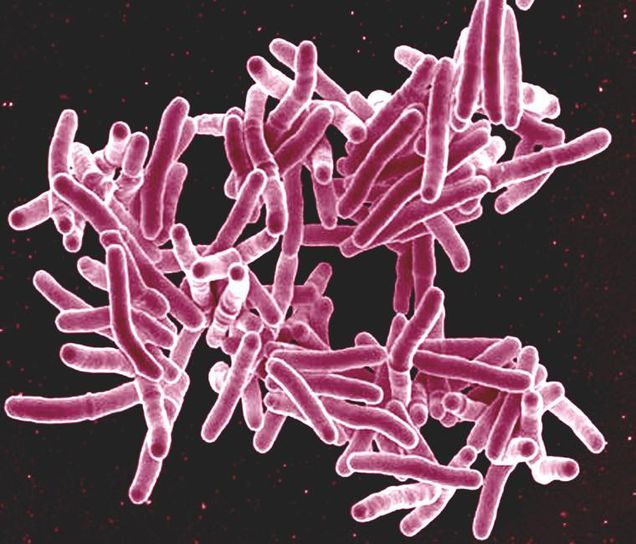SPH Researchers Join Major TB Study.
BU School of Public Health researchers will share in a seven-year, $21 million grant awarded to Boston Medical Center to investigate why the bacteria that cause tuberculosis (TB) affect individuals in different ways.
The grant to BMC from the National Institutes of Health will allow researchers from the BU schools of public health and medicine to examine the biological factors, or biomarkers, that indicate whether a person infected with Mycobacterium tuberculosis (MTB) is likely to develop symptoms of the disease in his or her lifetime or will be cured by treatment. The ultimate goal of the research is to develop new tools for more effective prevention and treatment of TB.
One-third of the world’s population is currently infected with MTB. According to the World Health Organization, approximately 9 million individuals globally became ill from TB, and 1.5 million of those individuals died, in 2013. TB is spread person to person through the air and most often affects young people or those with compromised immune systems. Many people who contract TB never develop symptoms, which include a cough, fever, night sweats and weight loss.

While there are treatments available, they can take up to six months to completely kill the bacteria. Treatment failure happens frequently, as people discontinue treatment once symptoms disappear without finishing their entire prescribed dose. However, because the bacteria are not all killed, patients relapse and then need more treatment, which eventually may lead to drug resistance and even death for some individuals.
“There have been strides in reducing TB mortality rates worldwide, but it remains one of the most deadly diseases and disproportionately affects women and individuals in low and middle-income countries,” said Dr. Jerrold Ellner, chief of infectious diseases at BMC and professor of medicine at BU School of Medicine, who will serve as the study’s principal investigator.
The research team will examine active cases of TB in South Korea and Brazil – two areas with high rates of TB – in order to determine risk factors for progression to active TB after infection and early markers of bacteria being eradicated in response to chemotherapy. They also will investigate if some individuals have an immunity to TB that enables them to remain asymptomatic.
BU collaborators on the study include Dr. C. Robert Horsburgh, professor of epidemiology at SPH; Laura White, associate professor of biostatistics at SPH; and Dr. Edwards Jones-Lopez, infectious disease physician at BMC, assistant professor of medicine at BUSM and assistant professor of epidemiology at SPH. Other researchers come from the Albert Einstein College of Medicine, Massachusetts Institute of Technology, Seattle BioMedical Research Institute, Rutgers University and the Nucleo de Doencas Infecciosas in Brazil.